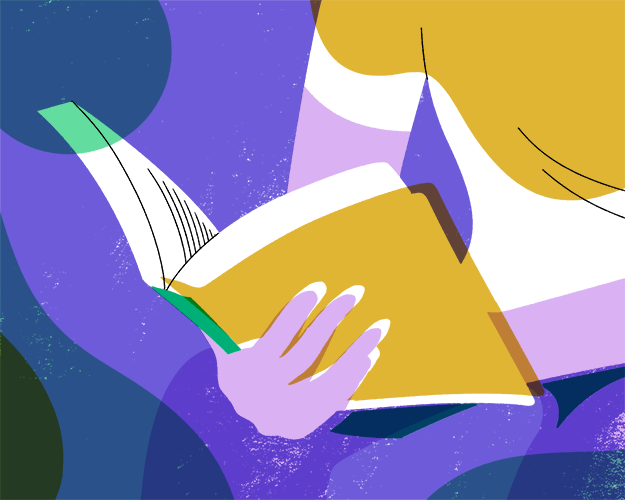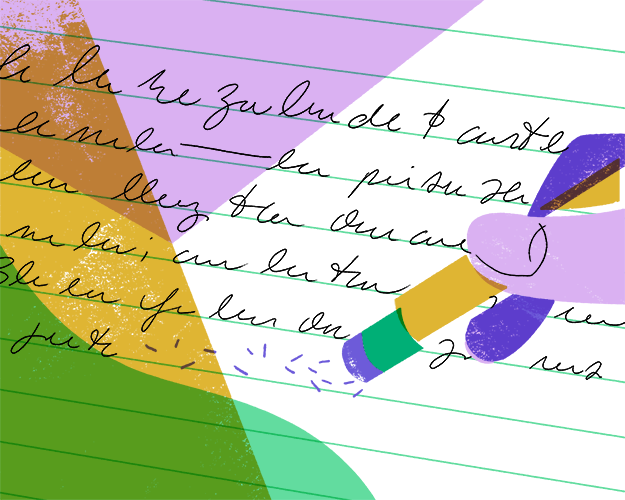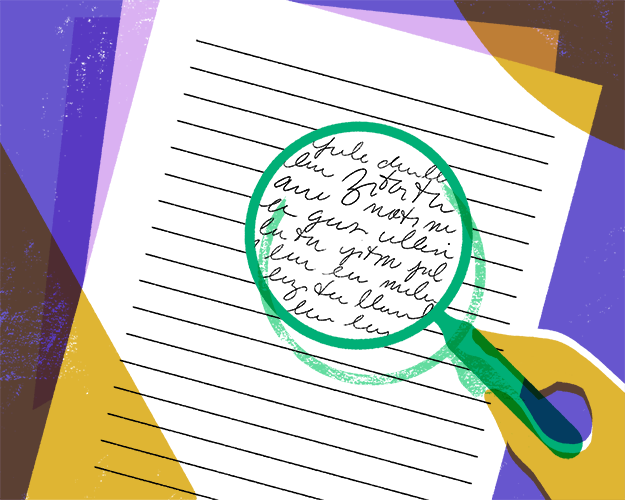
1.
"I write primarily on my laptop, so I'll take a separate notebook and outline everything there. I'll then ask myself the question: 'What is this scene supposed to accomplish?' And then from there I find the answers and get back to writing. And then sometimes I'll take a Netflix break!"
—Adam Silvera, author of More Happy Than Not
2.
"I put things aside. That's a wonderful luxury to just say, 'I'm just not going to look at this for two months.' And it's amazing because I feel like the best editor for your work would be you if you had never read it. To me, it's like you renew your perspective on it by just putting it aside for some time. It's incredible how problems get solved subconsciously when you're not looking at it. It's also a great moment to start a new piece of writing. So if you get stuck on one, you can turn to the other and you never feel unproductive."
—M.T. Anderson, author of Feed and many others

4.
"For me, it always feels really hard to write. So I try and make it as easy for myself with my personal writing method, which is I don't write in order. I write whatever I feel most excited about first. Joss Whedon has the same writing style and calls it 'dessert first.' And that's the same thing I do."
—Jenny Han, author of To All the Boys I've Loved Before and The Summer I Turned Pretty series
5.
"I'm going to steal an answer that a fellow Penguin writer gave on tour. Her name is Alison Goodman, and she has a theory that there is no such thing as writer's block, but 'writer's pause.' If you know you're not stopped for good, and you know it's a pause, you can generally identify that there is something going wrong with the story. And once you identify the problem, you can get through the pause. Ever since she told me that, I've found it so helpful."
—Sabaa Tahir, author of An Ember in the Ashes
6.
"Usually I try and do something else. Tetris, Bejeweled — video games are what works for me. Usually writer's block for me is because I made a mistake. So I did something wrong, a character does something they normally wouldn't do, like I've just lost my way. It usually involves going back and writing a new scene, but it will help in the end. And if that doesn't work, video games always work. Just take your mind off of it."
—Nicola Yoon, author of Everything, Everything and The Sun Is Also a Star

7.
"Rereading old books that I love. I think the writing energizes and inspires me as much as it did the first time. I also watch a lot of TV. Immersing myself in other people's stories really helps me."
—Brandy Colbert, author of Pointe
8.
"I don't believe in writer's block. My theory, for me at least, is that writer's block comes from the fear of writing badly. And I don't have that fear anymore. Because I already know it's inevitable. It's going to happen. So I just kind of blah, blah, blah it out! Push through it until, eventually, you'll find the rhythm. So I think that's kind of what my process is in terms of combatting it."
—Jason Reynolds, author of When I Was the Greatest, All American Boys, and The Boy in the Black Suit
9.
"I think instead of writer's block, I get writer's swamp. So for a period of time, I'll think nothing I write feels good. It feels like this gray muck. So I try and figure out what else is going on in my life that's making me feel this way, like if I'm upset about something else it becomes this shadow. Once, for My True Love Gave to Me, I had to write a short Christmas love story. And everything I wrote was wrong. People were breaking up. But what it was, I was really upset about something at the time, so I needed to break free of that first before I kept going."
—Rainbow Rowell, author of Fangirl, Landline, Eleanor & Park, and more

10.
"I read in a Jennifer Egan interview — she put it so well — that writer's block is just the fear of writing badly. So the way I see it, I'm going to write badly no matter what. Eventually there is going to be a spot, especially in a first draft, that sucks. And so I usually let my future self worry about it or my editors worry about it because I know I have a chance to go back and fix it. But if that continues for too long I know I need a break, so I'll watch a movie or walk or just take one day off and get back to it the next day."
—Adi Alsaid, author of Let's Get Lost and Never Always Sometimes
11.
"So there's two kinds of writer's block, I think. One of them is the kind of writer's block we talk about which is the 'I don't know what to write about!' writer's block. For that, the the answer is you write every day — you freewrite. You just set yourself down and you write words until there is something interesting to say. But the other type of writer's block that I don't think we talk about is the shame about not writing. 'I should be writing and I'm not a good person when I'm not writing.' And I have that real hardcore. I don't write every day, and I don't bash myself over the head for that. Even as a full-time job, I write 4–5 days a week. And that's what I have, that's what I can do without being angry with myself."
—Alex Gino, author of George
12.
"Usually when I have writer's block, I know it's because I've messed up somewhere along the way. So it's a matter of backtracking and trying to figure out what chapter or scene I need to completely rewrite. Sometimes it takes me a couple days and other times it's like a week or a month, but I keep trying things until they work."
—Stephanie Diaz, author of Extraction, Rebellion, and Evolution

13.
"I don't believe in writer's block, and I know every writer says this. But I feel like if you're hitting a wall it's because you have a problem earlier on than you think you do. So always go backward. The problem will always be further back than you think. Go back to the beginning and double-check that everything you have needs to be there."
—Robyn Schneider, author of The Beginning of Everything and Extraordinary Means
14.
"I think with writer's block, it means you're coming at the problem at the wrong angle. So I usually do the opposite of what I'm trying to do. So if a character is trying to go into the woods and it's not working I'll say, 'What if I killed the character? What if he was dead?' Usually if you do the opposite, then you find the answer. Writer's block is usually caused by hitting a wall because you've made a wrong turn. So start by doing the opposite."
— Soman Chainani, author of the School for Good and Evil books
15.
"I think when people have writer's block, they're trying to look at the big picture too soon. So what you have to do is concentrate on the minute detail of the story and write that. So if you say, 'What is the theme of this book?' and you're only 40 pages in, you're going to have writer's block because you're trying to do too much at once. So I usually go, 'OK, today my job is to get character A from setting one to setting two.' Also, I always seek the answers in other art. So I'll read other people's books or watch a movie. Be inspired by other amazing people who are doing amazing things."
—Matt de la Peña, author of Last Stop on Market Street, Mexican Whiteboy, We Were Here, and many more

